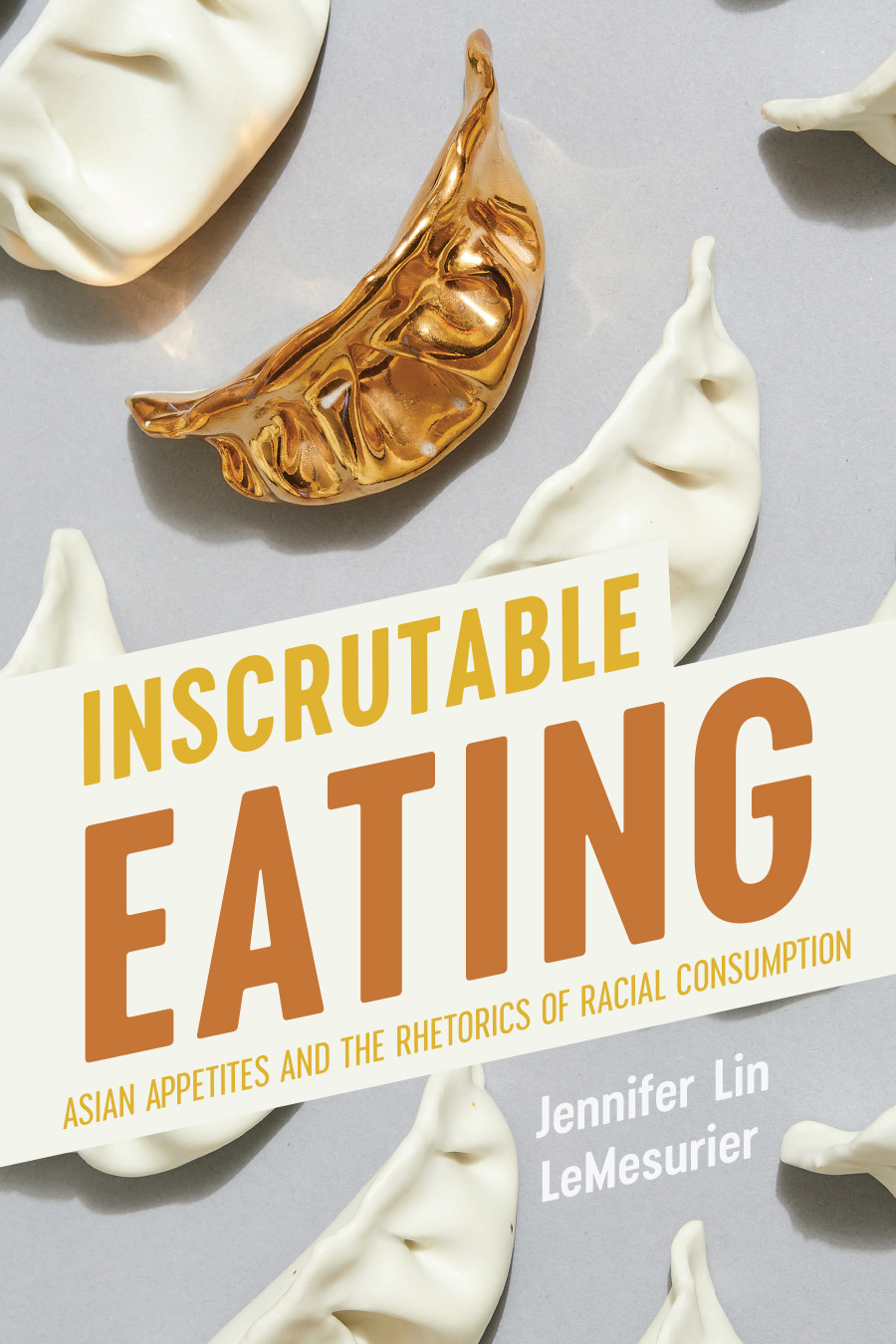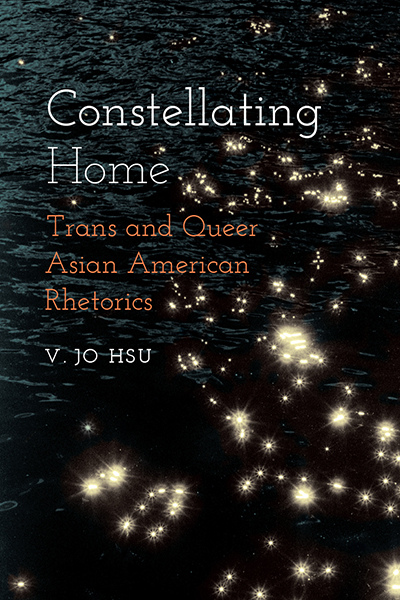Jennifer LeMesurier on This American Life (Prologue and Act One)
“In Inscrutable Eating, LeMesurier brings nuance to the ubiquitous maxim ‘you are what you eat’ by unraveling the rhetorical process of how one comes to be defined by how and what you eat. As scholars in food studies, Asian American studies, critical race and ethnic studies, and gender and sexuality studies (among others) continue to critically examine ‘how the stories we tell about people and their appetites are inextricable from tacit assumptions about race, gender, and sexuality’ (123), her theory of gut orientations offers a fruitful framework that can enhance this work.” —Nicolyn Woodcock, Society for US Intellectual History
“Theoretically rich and sophisticated, Inscrutable Eating makes an important contribution to a field that has had to reckon with the way it has approached research and teaching about communities of color. LeMesurier’s novel conceptual work, compelling analysis, and timely rhetorical intervention will make this book a touchstone in cultural rhetorics.” —Morris Young, author of Minor Re/Visions: Asian American Literacy Narratives as a Rhetoric of Citizenship
“Through deft integration and synthesis of theories and arguments from diverse disciplines, LeMesurier persuasively demonstrates how the racialization and alienization of Asians have long been coded in discourse on food. Inscrutable Eating holds immense promise for rhetoric studies and beyond.” —Shui-yin Sharon Yam, author of Inconvenient Strangers: Transnational Subjects and the Politics of Citizenship
“You are what you eat,” but what if you’re seen as a rat eater, bat lover, or MSG user? In Inscrutable Eating, Jennifer Lin LeMesurier considers how everyday assumptions about Asian food influence the perception of Asian and Asian American identity within the US racial landscape, demonstrating that beliefs about how certain people eat are inseparable from attitudes that support hierarchies around race, gender, and sexuality.
Drawing on rhetorical theory, affect theory, and Asian American studies, LeMesurier analyzes messages in US popular culture about Asian eating to develop the concept of gut orientations: rhetorically dominant ways of interacting with food that scale upward to feelings of desire and disgust toward social groups. Looking at examples from fears around MSG to uproar over wet markets as the source of COVID-19, she argues that these “gut” reactions establish certain racial views as common-sense truths rather than cultural biases, reinforcing dominant norms about what belongs on whose plate, or who belongs at what table. In demystifying marginalizing discourse around food and eating, LeMesurier shows how exposing the tacit, felt ideas of consumption is necessary to contest broader forms of discrimination.
Jennifer Lin LeMesurier is Assistant Professor of Writing and Rhetoric at Colgate University.
Contents
List of Illustrations
Acknowledgments
Preface Orienting toward Race at the Table
Chapter 1 Gut Orientations
Chapter 2 Rat Eaters: Defining American Masculinity in Opposition to Asian Deviance
Chapter 3 Bat Lovers: The Threat of Asian Appetites to US National Embodiment
Chapter 4 MSG Users: Ph antasies of Health as Race Neutral
Chapter 5 “Too Sensitive” Speakers: The Limits on Asian Emotion in the Public Sphere
Conclusion Unmooring Habits of Taste
Appendix 1 New York Times Comments on “Asian Salad”
Bibliography





